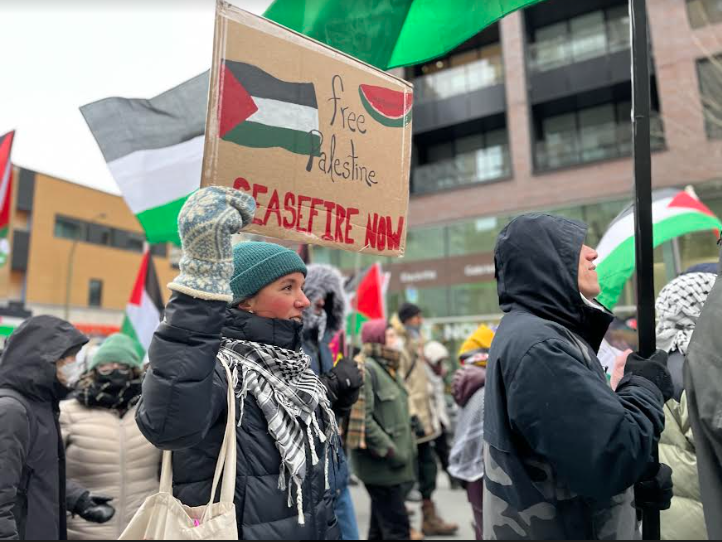The Under-Secretary-General for Humanitarian Affairs, Mr. Martin Griffiths, expressed his deep concern to the Security Council this afternoon following statements by Israeli ministers in favor of the massive transfer of civilian populations from the Gaza Strip to third countries. According to the Assistant Secretary-General for Human Rights, Ms. Ilze Brands Kehris, these incendiary remarks fuel fears of expulsion coupled with the impossibility of returning. Algeria, which had requested the holding of this session, noted the “rare consensus” which prevailed among the members of the Council to reject “any project of forced transfer of Palestinians outside their lands”, a project of which Israel denied the existence.
Taking stock of the 100 days of war in Gaza, the Under-Secretary-General, who is also the Emergency Relief Coordinator, indicated that, since the “abominable events” of October 7, more than 23,000 people have been killed in Gaza, more than 58,000 injured and nearly 1.9 million civilians, or 85% of the total population, are displaced, according to the Gaza Ministry of Health.
Continuing, the senior official clarified that, as Israeli ground operations move towards the south of the territory, airstrikes have intensified in areas where civilians have been ordered to relocate for their safety. Therefore, he concluded, there is no safe place in Gaza, and in Gaza, a dignified human life is almost impossible. And right now, he added that it’s hard to imagine that people could return to the north right now.
The unacceptably high civilian casualties, the near-complete destruction of essential civilian infrastructure, massive population displacements, and abominable humanitarian conditions in the Gaza Strip raise serious concerns about the War Crimes Commission, said the Deputy Secretary General for Human Rights, before denouncing the inflammatory remarks of certain Israeli officials pleading for permanent resettlement of Palestinians “beyond the seas”. “This must not happen,” said Ms. Kehris.
From Algeria to Switzerland, Ecuador, and Slovenia, as well as permanent members of the Council, delegations reached a “rare consensus” to reject any forced transfer of Gazans. Switzerland recalled that under the Geneva Conventions, which prohibit such projects, measures should be taken to prevent this “mass deportation” to avoid a conflagration in the region and the rest of the world, warned the Russian Federation.
For Ecuador, the forced transfer of civilian populations is a violation of international humanitarian and human rights law, as well as of Security Council resolutions 2712 (2023) and 2720 (2023), the second recalling that the band of Gaza is an integral part of the Occupied Palestinian Territory. Its residents must not be subjected to forcible transfer or resettlement outside the Gaza Strip, the United Kingdom has ruled.
“Protect our people,” urged the Permanent Observer of the State of Palestine, insisting that “they are here to stay because they have the right to live in freedom and dignity in their ancestral land”. Israel, however, has maintained that there is no forced transfer at work in the Gaza Strip, saying its forces are simply fighting Hamas terrorists. We have also requested the temporary evacuation of active war zones and assured the delegation.
Following the lead of the two UN officials, most Council members reiterated the importance of establishing an immediate ceasefire in Gaza, with some demanding that hostages held by Hamas be released. The United States, for its part, was moved by the Council’s inability to condemn this armed group for its attacks on October 7, nor to recognize the subsequent displacement of some 250,000 Israelis, nor the use of the Gazan population as human shields. The American delegation also unequivocally rejected the statements of certain Israeli ministers in favor of the expulsion of Palestinians from Gaza, deeming them “unworthy and incompatible with lasting peace”.
Security Council meeting of January 12, 2024






